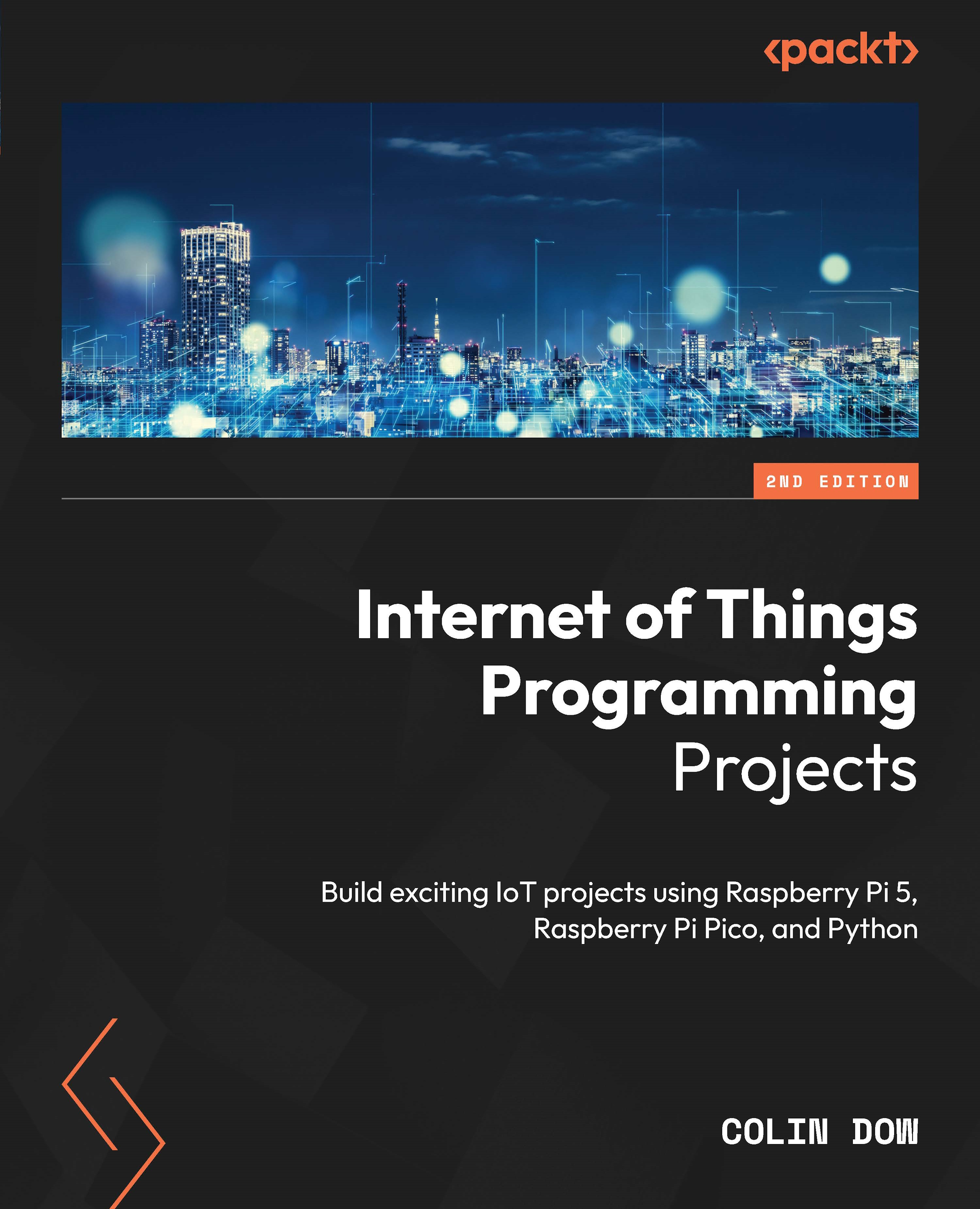Summary
In this chapter, we explored various small screens compatible with the Raspberry Pi. We then used Raspberry Pi’s 7-inch touchscreen to create a versatile IoT information display that included weather forecasts and traffic maps for a specific city.
By utilizing and optimizing web service data, we demonstrated the flexibility of Raspberry Pi in handling complex information display tasks. The principles and code developed in this chapter can be adapted for other uses, such as home automation dashboards, public information kiosks, or industrial monitoring systems for manufacturing processes.
We have focused primarily on displaying information – in particular, weather information via web services – over the last few chapters. In the next chapter, we will start exploring sensory information with our Raspberry Pi as we work toward building an IoT security application.



























































